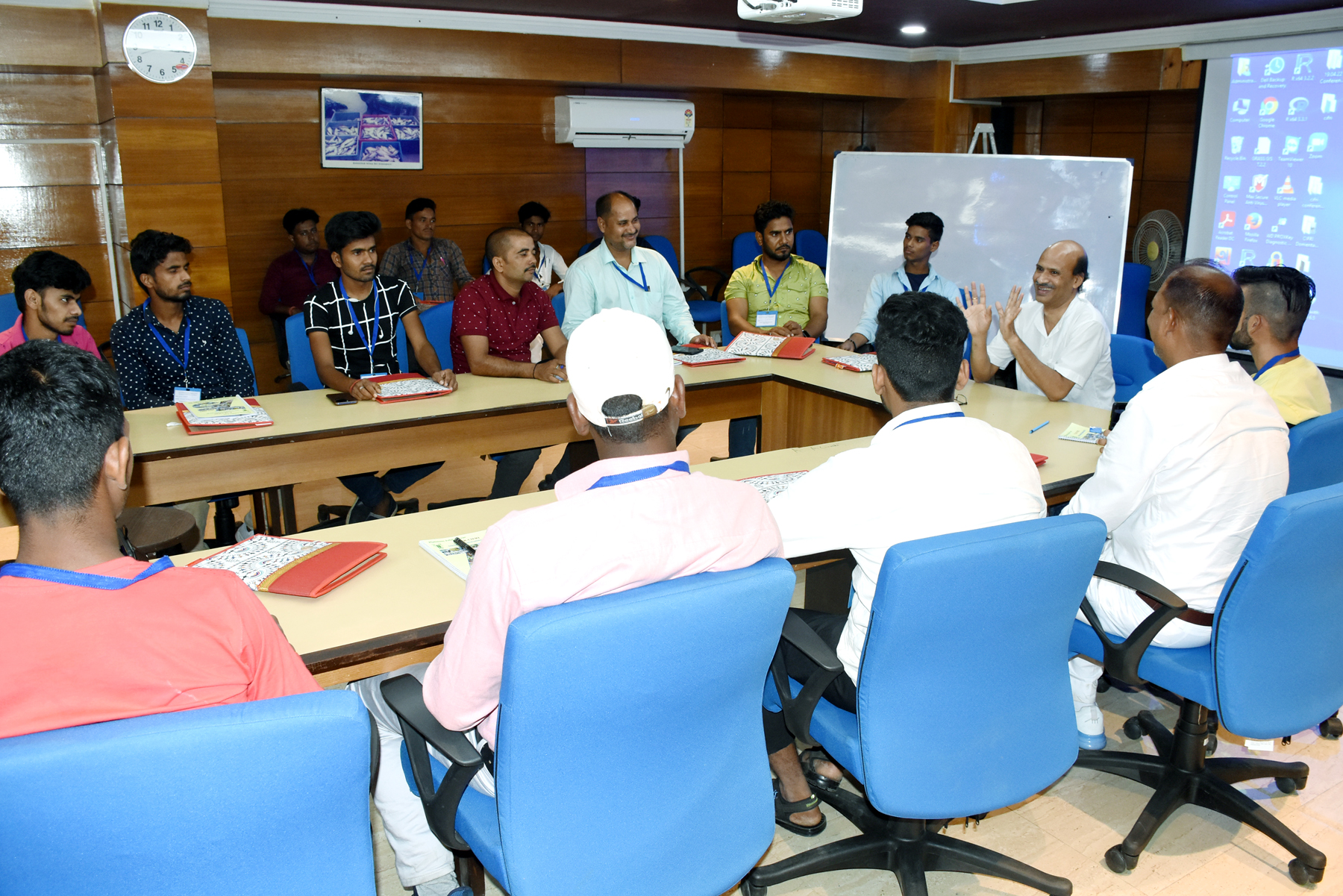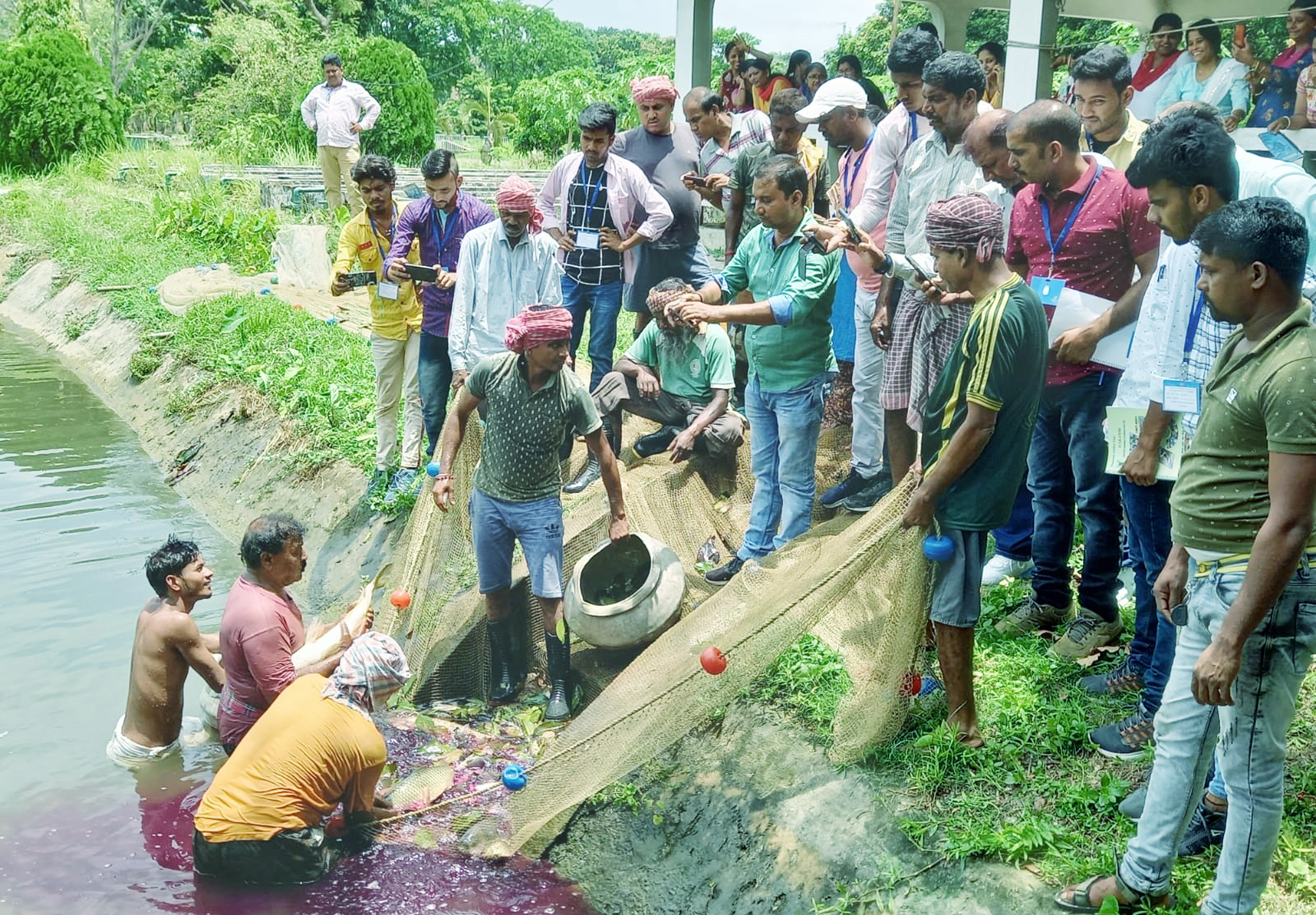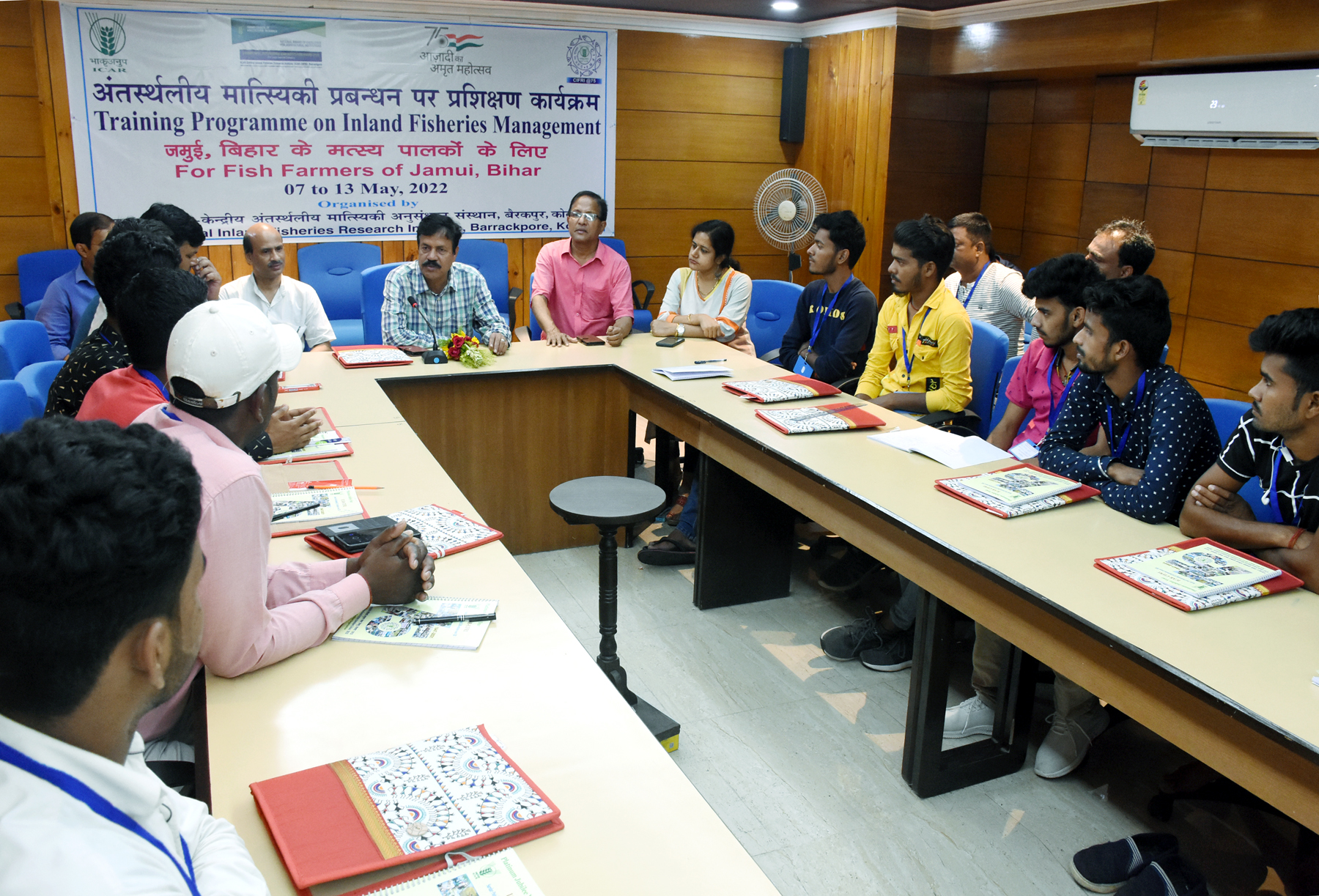Overview
Publications
Recruitment
Intranet
CIFRI Corners'
Jamui district of Bihar is very resourceful in terms of inland open waters, as catchments of Kiul and Barnar Rivers form a major part of the district. Despite abundant aquatic resources, the supply of adequate fish is short of demand in this district. Based on the need of the present day, a 7-day training programme on “Inland Fisheries Management” has been organized at ICAR-CIFRI, Barrackpore from 07-13 May 2022 as a part of skill development and capacity building programme with a mission to increase the fishers’ income double.
 A total of 25 active fish farmers participated in this programme. Inaugurating the programme, Dr. B.K. Das, Director of the Institute emphasised on the skill development of the fishers on various aspects of inland fisheries management ensuring their sustainable livelihood security. He also urged the fishers to explore their available resources for optimum productions and productivity by acquiring scientific knowledge and applications. Dr. Das also briefed the trainees about the new entrepreneurship avenues available in inland fisheries of India.
A total of 25 active fish farmers participated in this programme. Inaugurating the programme, Dr. B.K. Das, Director of the Institute emphasised on the skill development of the fishers on various aspects of inland fisheries management ensuring their sustainable livelihood security. He also urged the fishers to explore their available resources for optimum productions and productivity by acquiring scientific knowledge and applications. Dr. Das also briefed the trainees about the new entrepreneurship avenues available in inland fisheries of India. 












